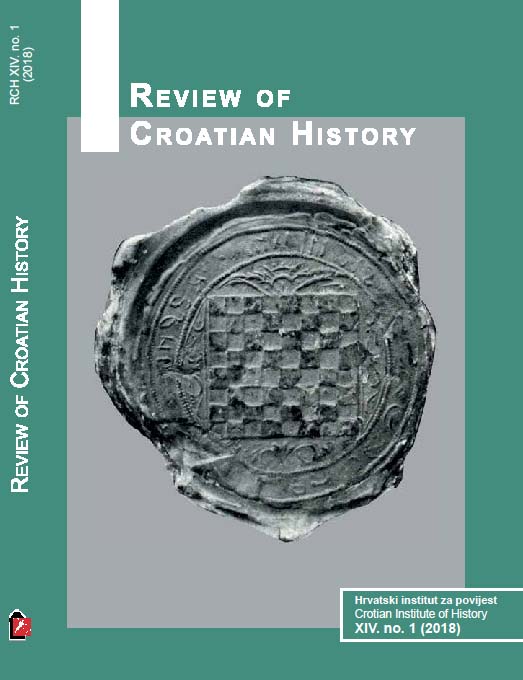DIE PARTEI DES NATIONALEN FORTSCHRITTS – DIE LETZTE UNIONISTISCHE PARTEI IN KROATIEN
Party of People’s Progress: The Last Unionist Party in Croatia
Author(s): Ivan BulićSubject(s): History, Military history, Political history, Pre-WW I & WW I (1900 -1919)
Published by: Hrvatski institut za povijest
Keywords: Unionism; Party of People’s Progress; Ban Nikola Tomašić; Ban Iván Skerlecz; István Tisz; Croatian-Serbian Coalition; Commissariate; World War I;
Summary/Abstract: During the 19th and early 20th centuries, unionism as a political concept played an important role in Croatian politics. It was organized in different political parties and at different times. After all, the very beginning of multi-party politics was marked by the foundation of the Croatian-Hungarian Party. These were politically engaged individuals and groups who, during the period of national integration in Central Europe, encouraged a segment of the Croatian people to decide on being part of either the Croatian or the Hungarian nation. For example, descendants of certain Turopolje families who in the mid-19th century played an important role in Croatian politics moved to Hungary, Hungarized their surnames, and fully identified themselves as part of the Hungarian nation (Geyza Josipović, Ivan Skerlecz of the Škrlec family from Lomnica). Their Croatian origin was now in the service of Hungarian interests and the efforts of the Hungarian political circles to influence the Croatian political situation as strongly as possible.There was another unionist group, which did not question their Croatian affiliation, but nevertheless saw Croatia’s future as firmly linked to Budapest. The most important representative of this second group was the Croatian ban Nikola Tomašić, founder of the last unionist party in Croatia. An analysis of the archival sources has undoubtedly shown the efforts he invested in the welfare of the Triune Kingdom, and that he considered Budapest as the main instrument in this regard. He was therefore exceptionally involved in the Hungarian political circles and maintained both friendly and official contacts with the Hungarian political leadership. It is in this context that one should see Nikola Tomašić’s last act aiming at the preservation of unionism in the Triune Kingdom: founding the last party of unionist political orientation, the Party of People’s Progress. Previous historiography considered the dissolution of the People’s Party, a party under the remarkable influence of the Croatian ban Károly Khuen-Héderváry, as the end of unionism in the Triune Kingdom, and neglected or only briefly noted the emergence and short-living existence of the Party of People’s Progress. It is this fact that motivated me to establish two facts. The first is that the unionist political orientation did not disappear from Croatian politics with the dissolution of the People’s Party, while the other is that unionism had different forms and goals. Thus, in the final days of the Austro-Hungarian Monarchy, some unionists or politicians tried to achieve welfare for Croatia by relying on the official circles in Budapest, while others joined the new party alliance on the Croatian political scene, the Croatian-Serbian Coalition.
Journal: Review of Croatian History
- Issue Year: XIV/2018
- Issue No: 1
- Page Range: 199-244
- Page Count: 46
- Language: German

